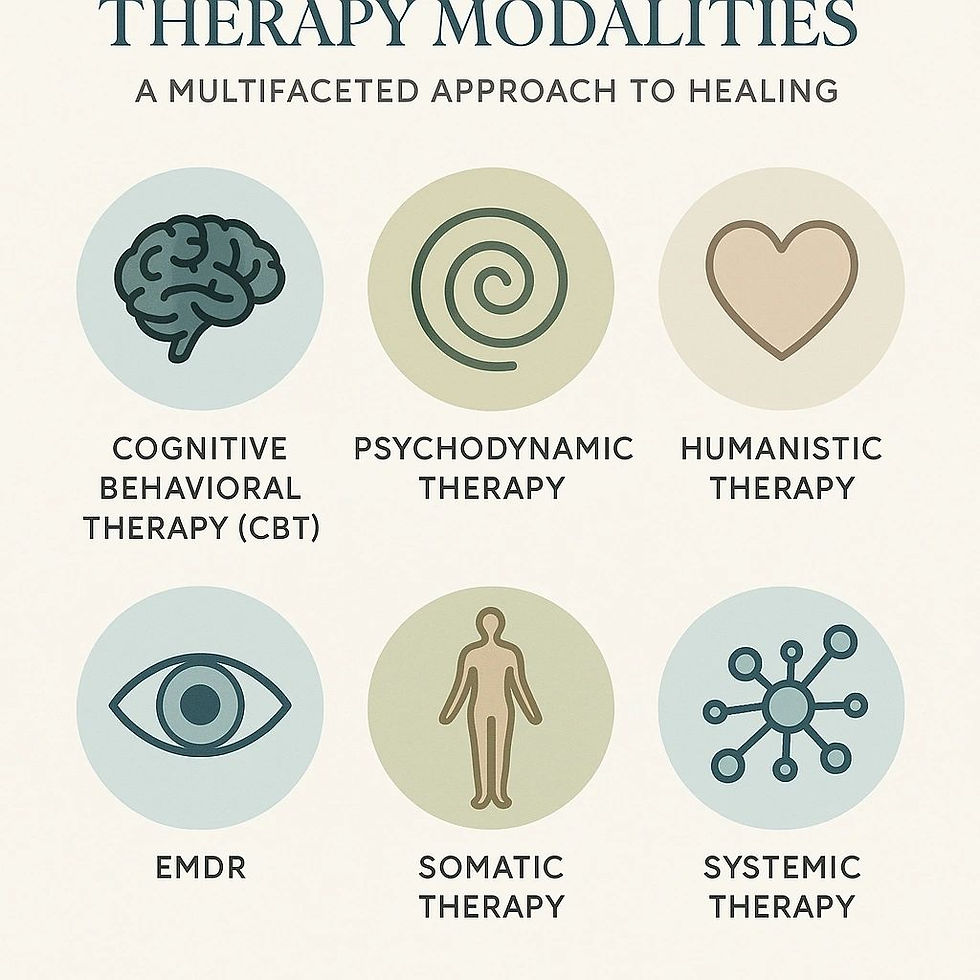Building Resilience as a Family Unit: Thriving Together Through Life’s Ups and Downs
- michelleluna
- Jun 13
- 4 min read

Every family experiences its fair share of challenges—whether it’s a big life transition, financial stress, health struggles, or the everyday pressures of work and school. While we can't control everything that life throws our way, we can control how we respond—and that’s where resilience comes in.
Resilience isn’t just an individual trait. Families can build resilience together, creating a strong, supportive foundation that helps every member feel safe, capable, and connected—even during tough times.
In this blog, we’ll explore what family resilience really means, why it matters, and practical ways to build it within your household.
What Is Family Resilience?
Family resilience is the ability of a family to withstand and recover from adversity. It’s about bouncing back—not perfectly or instantly, but together and with intention. A resilient family adapts to challenges in healthy ways, communicates effectively, supports each other emotionally, and continues to function with a sense of unity and hope.
It’s not about never struggling. It’s about struggling together—and still finding a way to grow stronger.
Why Is Resilience Important for Families?
Promotes emotional well-being: Families that are resilient tend to experience less chronic stress and have better mental health outcomes.
Strengthens relationships: Shared coping builds deeper bonds and fosters trust.
Encourages healthy coping in kids: Children learn how to manage setbacks and uncertainty by watching how their families respond.
Creates a sense of safety and stability: Even when things feel unpredictable, resilient families provide a consistent emotional anchor.
Practical Ways to Build Resilience as a Family
1. Open and Honest Communication
Healthy communication is at the heart of a resilient family. Create space where everyone feels safe to express their thoughts, fears, and hopes—without judgment.
Hold regular family check-ins or “talk time.”
Encourage kids to talk about their emotions by asking open-ended questions.
Model vulnerability by sharing your own feelings in age-appropriate ways.
🗣 Tip: Phrases like “How are you feeling today?” or “What was the hardest part of your day?” can open the door to meaningful conversations.
2. Establish Routines and Flexibility
Routines give structure, especially during uncertain times. But being overly rigid can cause stress. The key is finding balance.
Keep regular mealtimes, bedtimes, and shared rituals like game night or family walks.
Allow flexibility when things don’t go as planned—because they won’t always!
🔄 Tip: Teach kids that while routines are helpful, it’s okay to adapt when needed. This builds confidence and flexibility.
3. Celebrate Small Wins and Strengths
Focusing on what’s going right builds optimism and a sense of control. Resilient families take time to celebrate their strengths—no matter how small.
Acknowledge effort, not just results (“I’m proud of how hard you tried today”).
Create a family “wins jar” where you drop in notes about things you’re proud of.
🎉 Tip: Share a “highlight of the day” at dinner to keep gratitude and positivity part of your daily rhythm.
4. Practice Problem-Solving Together
Instead of trying to solve every issue on your own as a parent, involve the whole family. This fosters collaboration and helps everyone feel empowered.
When facing a problem (e.g., time management, sibling conflict), brainstorm solutions together.
Encourage each person to contribute ideas—even young kids!
🧠 Tip: Use the “What can we do about this together?” approach rather than placing blame or rushing to fix things yourself.
5. Model and Encourage Self-Care
Families are strongest when each member tends to their emotional and physical needs. Help kids see that self-care isn’t selfish—it’s necessary.
Prioritize sleep, balanced meals, and movement.
Teach mindfulness or relaxation strategies.
Encourage alone time when needed and respect boundaries.
🧘 Tip: Make self-care a family affair—have a “chill hour” where everyone does something relaxing (books, puzzles, music, etc.).
6. Support Each Other’s Emotional Needs
Validation and emotional support go a long way in difficult times. Resilient families don’t dismiss each other’s feelings—they make space for them.
Practice active listening—make eye contact, don’t interrupt, and reflect back what you hear.
Avoid minimizing feelings (“You’ll be fine”) and instead say things like, “That sounds really hard. I’m here for you.”
💛 Tip: Create a family mantra like “We’re in this together” or “We can handle hard things” as a reminder of your emotional support system.
7. Maintain Hope and Perspective
It’s normal to feel overwhelmed, but a resilient family holds onto hope—even in uncertainty. Perspective helps you remember that challenges are part of life, but they don’t define you.
Talk about past challenges and how you got through them.
Remind each other of your shared values, dreams, and purpose.
Look forward together—make plans for the future, even if they’re small or tentative.
🌅 Tip: Create a “hope board” with images, quotes, or goals that remind your family what you’re working toward.
Final Thoughts
Building resilience isn’t a one-time effort—it’s a lifelong journey of showing up for each other, especially when things get tough. By nurturing open communication, emotional support, and shared strength, your family can develop the tools needed to weather life’s storms together.
Remember: You don’t have to be perfect. You just have to be present.








Comments